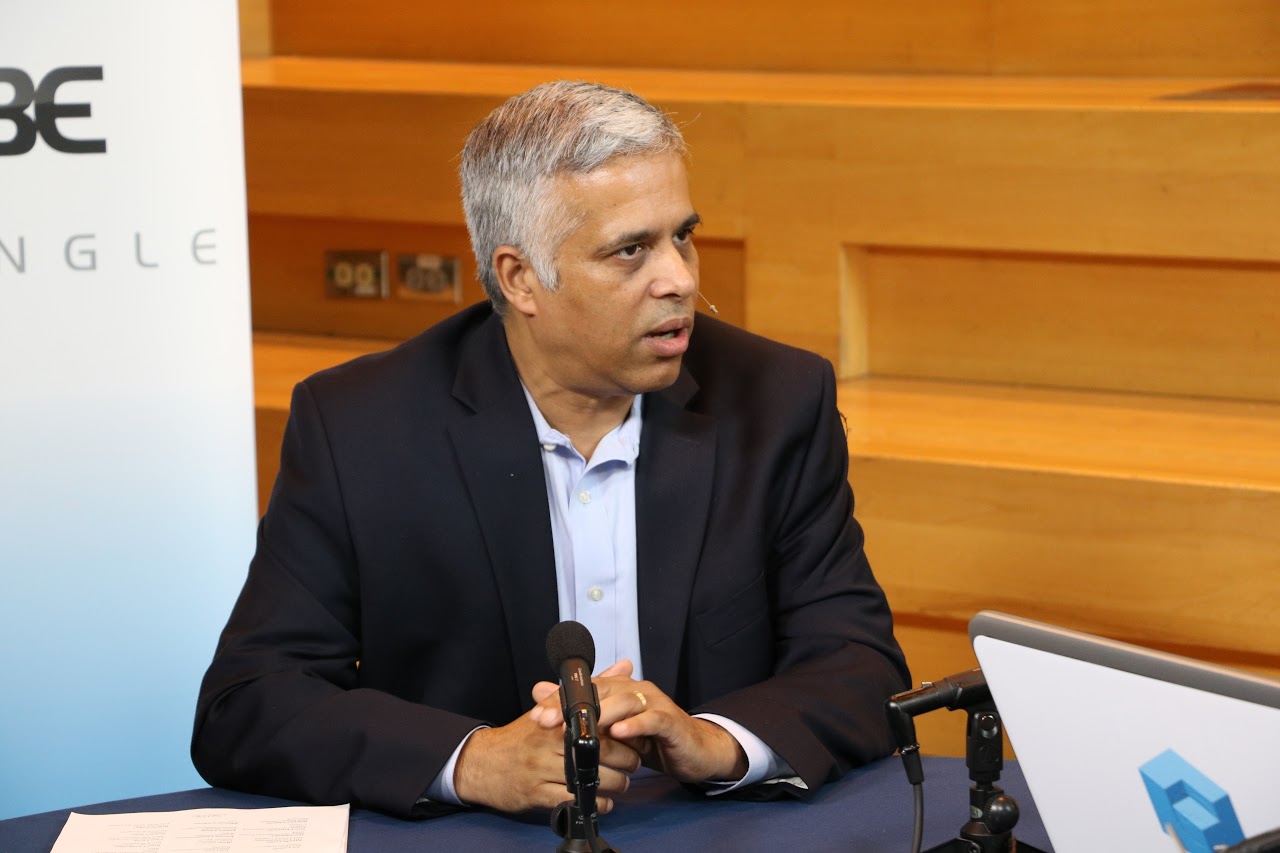 NEWS
NEWS
 NEWS
NEWS
 NEWS
NEWS
Big Data is the big idea in the tech industry these days, but all that data is worthless if a business can’t manage it. The task of wrangling information falls to companies like Global IDs, who help big businesses extract value from their Big Data.
Arka Mukherjee, founder and CEO of Global IDs, joined Dave Vellante and Paul Gillin of theCUBE, SiliconANGLE’s Media team, to talk about Global IDs and data ecosystems.
The first question was about Global IDs and what the company does. Mukherjee replied that the company was in the business of addressing problems related to data ecosystems. In his view, most companies show a lack of holistic understanding of their data; Global IDs creates a foundation to help understand an organization’s information.
Software designed for the previous style of business is somewhat outdated when it comes to Big Data. The high-volume, high-complexity environment calls for a new approach. Global IDs brings a solution based on a foundational understanding through profiling and discovering data. Once this is done, they can solve other problems in the data ecosystem.
This understanding means a vast amount of metadata, or data about data. To support this need, Global IDs has built the largest metadata repositories in the world. It believes metadata is the key to solving today’s data problems.
The discussion then turned toward what the industry is doing to solve these problems at scale. Mukherjee explained the idea of classification was central to any intelligent data management system. To deal with such a complex challenge, it uses automated agents to break up and then collectively brings together the information ecosystem.
Unfortunately, companies hold a lot of poor-quality data. Few companies measure the quality of their data or use proper metrics to judge data. Most companies lack the experience or the solutions to track the quality of their information. Global IDs gives them the experience necessary to prevent low-quality data from entering the system.
“You have to have a long runway to solve these problems and the patience to make mistakes while solving these problems,” Mukherjee said.
Watch the full interview below, and be sure to check out more of SiliconANGLE and theCUBE’s coverage of MITCDOIQ Symposium 2015.
Support our mission to keep content open and free by engaging with theCUBE community. Join theCUBE’s Alumni Trust Network, where technology leaders connect, share intelligence and create opportunities.
Founded by tech visionaries John Furrier and Dave Vellante, SiliconANGLE Media has built a dynamic ecosystem of industry-leading digital media brands that reach 15+ million elite tech professionals. Our new proprietary theCUBE AI Video Cloud is breaking ground in audience interaction, leveraging theCUBEai.com neural network to help technology companies make data-driven decisions and stay at the forefront of industry conversations.